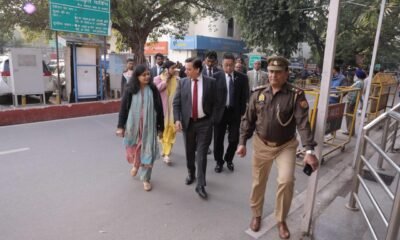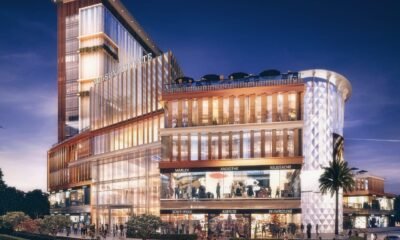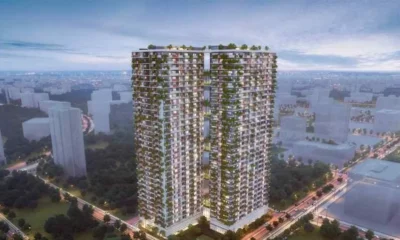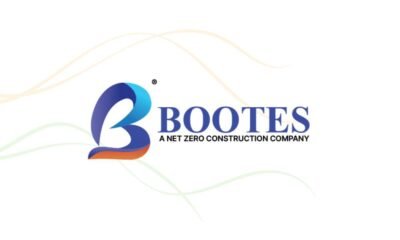News
Market Trends 2025: How Diverse Age Groups Are Shaping the Future of Real Estate

New Delhi, May 14, 2025: The real estate market, particularly the luxury segment, has traditionally been defined by opulence, featuring sprawling layouts, lavish architecture and statement interiors, which symbolised wealth and prestige.
The definition is rapidly evolving. As buyer expectations shift, it’s the younger generations, Millennials and Gen Z, who are leading the change. Their idea of luxury is less about excess and more about meaning. The notion of luxury living is being reimagined through the lens of sustainability, smart technology and personalised experiences.
For these new-age buyers, exclusivity lies in thoughtful design, eco-conscious choices and homes that reflect their values and lifestyle.
In recent years, Millennials and Gen Z have emerged as key drivers of change in the real estate landscape, showing a growing preference for homeownership. According to a JLL India report, by 2030, these two generations are projected to comprise 60 per cent of all new homebuyers in the country. This marks a clear shift in financial outlook, where buying a home is increasingly viewed not only as a lifestyle choice but a strategic step toward long-term wealth creation and financial stability.

“As the trend of homebuying continues to grow among millennials and Gen Z, the housing segment is witnessing new and evolving trends offering a holistic lifestyle. These new-age modern homebuyers categorically seek an elevated lifestyle in their living space,” says Gautam Kanodia, founder, KREEVA and Kanodia Group.
“Thus, the residential real estate landscape sees thoughtfully designed and crafted homes backed by advanced tech integration, AI-driven features, co-working lounges and wellness-focused amenities like rooftop yoga decks. Thus, they’re not buying property; they’re investing in purpose-built spaces that reflect who they are.”
Tech-savvy, aspirational and brand-conscious, this generation approaches homebuying with practicality and purpose. Rather than sprawling homes, they prefer compact, intelligent spaces equipped with high-speed connectivity, integrated co-working zones and wellness amenities like gyms and meditation pods.
A report by Magicbricks showed that young professionals aged 18-24 and senior citizens above 75 demonstrate a strong intent to purchase real estate.
The findings also show that young professionals are entering the housing market earlier than before driven by rising disposable incomes and long-term investment. Their early participation shows a generational shift in wealth creation and financial planning.
Vishesh Rawat, V-P and head of sales, marketing and CRM, M2K Group, says, “The new generation of homebuyers, particularly young professionals and small urban families, are decisive and time-conscious in choosing their ideal home.”
They are not just looking for four walls; they want fully finished, modern living spaces that reflect their lifestyle, he adds.
“What truly appeals to them is the convenience of fully loaded homes that come with luxurious finishes and fittings like decorative false ceilings, designer walls, AC’s modular kitchens, wardrobes and more. Aligning with the demand, projects today come up with safety features, efficient layouts and environmentally conscious designs that perfectly cater to these aspirations.”
Further, senior citizens are redefining what it means to age gracefully with evolving preferences that go far beyond conventional retirement homes. Today’s older homebuyers are prioritising comfort, accessibility and a strong sense of community.
To meet the evolving demands of a diverse buyer base, developers are reimagining residential design with a sharper focus on inclusivity and adaptability. Multi-generational homes with flexible layouts are becoming increasingly popular, catering to families that span Gen Z to senior citizens.

Neeraj Sharma, MD, Escon Infra Realtors, says, “We have observed that homebuyers are more diverse than ever with multi-generational families increasingly seeking homes that cater to distinct needs and aspirations.”
A 3 BHK unit might now house three generations, each with different priorities, which requires a complete rethinking of layouts, he adds. “Hence, we focus on integrating smart technology in our projects and offering modular designs to create flexible spaces.”
Thus, the generational shift in India’s real estate market is pushing the sector beyond traditional construction and into the realm of lifestyle curation. Real estate is no longer about fitting a single model; it’s evolving into a blend of sustainability, smart living and inclusivity that caters to diverse age groups and lifestyles.
-

 News4 weeks ago
News4 weeks agoIndian Real Estate in 2025: From Roller-Coaster Rides to Rock-Solid Foundations
-

 News4 weeks ago
News4 weeks agoDanube Group’s Rizwan Sajan to Host Bigg Boss 19 Contestants in Dubai on January 6–7
-

 News4 weeks ago
News4 weeks agoNavi Mumbai Property Prices Rise Over 22% in 5 Years, Premium Nodes Outpace Market Average: Realx Stats By Investoxpert
-

 Guest Column4 weeks ago
Guest Column4 weeks agoDelhi-NCR Rides GCC Expansion, Corporate Occupier Demand to Strengthen Office Market Momentum
-

 News3 weeks ago
News3 weeks agoPRANA by Nila Spaces Awarded Precertified WELL Residence Designation
-
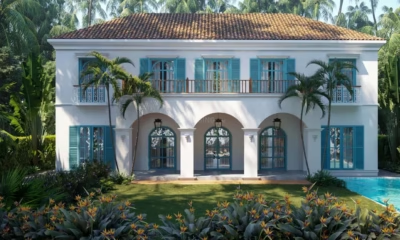
 News2 weeks ago
News2 weeks agoVianaar Homes Earns Great Place to Work® Certification in India
-

 News2 days ago
News2 days agoBudget 2026: Real Estate Sector Awaits Real Reform, Targeted Relaxations For Boost
-

 News2 weeks ago
News2 weeks agoBOOTES Enters Residential Development with ₹6,300-Cr Inventory, Redefining Luxury Through Clean-Air Living









